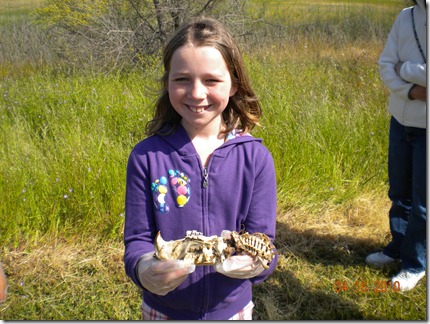Outdoor Education: An Entry to Careers In Science and Math For Diverse Populations
By Emilian Geczi, M.S.|Keith Cerk, M.A., M.Div.
Over the next decade, employment in the science, technology, engineering, and mathematics (STEM) sector is expected to grow at a significantly higher rate than in the overall job market. This projected growth represents an exciting opportunity for our youth, but conveying excitement about a STEM career to our children is not always easy. Ethnic minority, female, and low-income students are particularly disengaged from STEM-related learning, relative to the school population at large (1).
How To Increase Diversity Participation In The STEM Sector
Research shows that the great majority of adults who are active in the environmental science, engineering, and advocacy fields had formative outdoor experiences during childhood or had role models who directed their attention to the environment (2). Finding ways to connect our children – irrespective of social background – with the outdoors and with people who are passionate about the environment may therefore represent a key strategy in opening up a world of career opportunities for them. Connecting kids with nature not only contributes to their physical, social, and emotional development (3), but it may also instill in them the enthusiasm to pursue a career in science or in another STEM field.
Outdoor Education Programs Combine Fun With Life-Long Learning
Programs that introduce children of diverse backgrounds to the outdoors provide anecdotal evidence that exploring the sights, textures, smells, tastes, and sounds of the environment can combine fun and learning in a way that makes a lasting impression. Jacqueline, an eleven-year-old who moved to the U.S. with her family from abroad, was one of 10 students who enrolled in a summer program organized in 2008 by the First Baptist Church of Waukegan, IL, in partnership with several public and private organizations. The program allowed students to explore their neighborhood’s natural resources and meet scientists who make their living turning stones, counting birds, sampling water, or engaging in other activities that students themselves were undertaking. Jacqueline became fascinated with the American Toad and ended up presenting various facts and research findings about the species to other students. Later in the summer, Jacqueline paid a visit to the program coordinator and, after chatting about her experiences, stated her intention to become a paleontologist. Outdoor exploration can ignite passion for subjects like science and math. In the process, college and career aspirations can become a reality for children who otherwise might have never considered a profession in a scientific field.
Let Kids Be Their Own Guides
Whenever possible, parents should take their children outside and allow them to become their own guides.
· Unstructured time spent outdoors can help children develop interests and sensibilities that will last a lifetime.
· Families can also engage in outdoor activities, such as gardening or fishing, that affirm the passion and skills of their adult members.
· Kids may very well catch the spirit and the zeal from their parents.
· Participating in outdoor recreation programs offered through local agencies and organizations can supplement these family activities by exposing children to conservation scientists and other professionals who are enthusiastic about their work.
Partner With Your School
Outdoor youth programs delivered through local schools can be especially effective in communicating the importance of science and math to students of varied backgrounds. In the Chicago region, more than 6,000 public school students participate every year in the Mighty Acorns program, which takes them on three field trip experiences annually to a nearby public resource. Students have an opportunity to engage in conservation actions such as collecting seeds and planting seedlings in addition to exploring the outdoors on their own. Staff members are consistently amazed at how passionately children perform their work when entrusted to make a positive difference on the land. Trusting the child’s lead in the outdoors and nourishing his or her spirit of discovery, together with finding opportunities to interact with people who are passionate about the environment, may constitute a set of actions that go a long way toward cultivating the next generation of STEM professionals.
References
1. U.S. Department of Labor [USDL]. (2007). The STEM workforce challenge: The role of the public workforce system in a national solution for a competitive science, technology, engineering, and mathematics (STEM) workforce. 2. Chawla, L. (1999). Life paths into effective environmental action. Journal of Environmental Education, 31, 15-27. 3. Burdette, H.L. & Whitaker, R.C. (2005). Resurrecting free play in young children. Archives of Pediatric Adolescent Medicine, 159, 46-50. Emilian Geczi coordinates the Chicago Wilderness Leave No Child Inside initiative. He works with environmental, educational, faith-based, and other organizations to support programs that connect children with the outdoors. He has an M.S. degree in Natural Resources from the University of Vermont. To learn more about the Leave No Child Inside initiative or the Mighty Acorns program, you can visit the kidsoutside.info website or contact Emilian at 312-545-1007. Rev. Keith Cerk serves on the Chicago Wilderness Faith-Based Advisory Group and on the Youth Services Board of Kids Hope United. He pastors an urban, multi-cultural congregation and has worked with at-risk children, youth and gang members for over 20 years. Keith is a wilderness canoe trip guide who also co-directs a nature adventure program which uses the outdoors to engage children’s interest in the sciences. He loves to point out that adults in “green collar” careers can get paid for doing the same kind of fun activities the kids are doing. A certified Wilderness First Responder, Keith holds M.A. and M.Div. degrees and has been trained by the National Outdoor Leadership School (NOLS) and the Wilderness Awareness School. He can be reached via his church’s website: fbcwaukegan.com.
http://www.education.com/reference/article/outdoor-education-science-math-diverse/
LEARN MORE ABOUT HOW WHF IS GETTING KIDS OUTSIDE. WHF EDUCATION PROGRAM

 (916) 434-2759
(916) 434-2759



